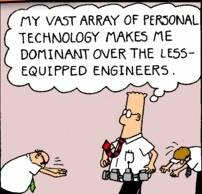December 10, 2015
Australia needs to do more to tackle the problems of mental health at work 0
 One in five Australians suffer from a mental health disorder and employers need to do more to tackle the related issues. That is the central claim made in a new OECD report called Mental Health and Work: Australia. The study claims that mental health issues cost the Australian economy AUD 28.6 billion per year, equivalent to 2.2 percent of GDP. Adding indirect costs, such as productivity loss or sickness absence, nearly doubles that amount. The report is the ninth in a series of reports looking at how education, health, social and labour market policy challenges identified in a 2012 report called Sick on the Job? Myths and Realities about Mental Health and Work are being tackled in OECD countries. The report suggest that while Australia’s recent mental health reform is an important and helpful development, the country ‘needs to do more to help people with mild to moderate mental health issues at and into work’.
One in five Australians suffer from a mental health disorder and employers need to do more to tackle the related issues. That is the central claim made in a new OECD report called Mental Health and Work: Australia. The study claims that mental health issues cost the Australian economy AUD 28.6 billion per year, equivalent to 2.2 percent of GDP. Adding indirect costs, such as productivity loss or sickness absence, nearly doubles that amount. The report is the ninth in a series of reports looking at how education, health, social and labour market policy challenges identified in a 2012 report called Sick on the Job? Myths and Realities about Mental Health and Work are being tackled in OECD countries. The report suggest that while Australia’s recent mental health reform is an important and helpful development, the country ‘needs to do more to help people with mild to moderate mental health issues at and into work’.






























December 8, 2015
Linear equations are no longer enough to determine the size of offices
by Mark Eltringham • Comment, Facilities management, Furniture, Technology, Workplace design
In 2013, the US Census Bureau announced that the official human population of the Earth had exceeded 7 billion for the first time. This provoked people to raise concerns that were couched in Malthusian pessimism. Although people might have assumed we’d left behind this kind of flawed thinking, there is obviously something appealing about the idea that exponential population growth is unsustainable when resources increase only in arithmetical terms. We’ve got a problem but what we should have learned in the two centuries since Thomas Malthus first popularised the idea is that there are complex factors that can influence the resources we need to survive, not least in terms of greater efficiency in the way we produce them. A similar debate is also apparent in the way in which the commercial property market is able to offer the right sort of buildings for modern organisations.
(more…)